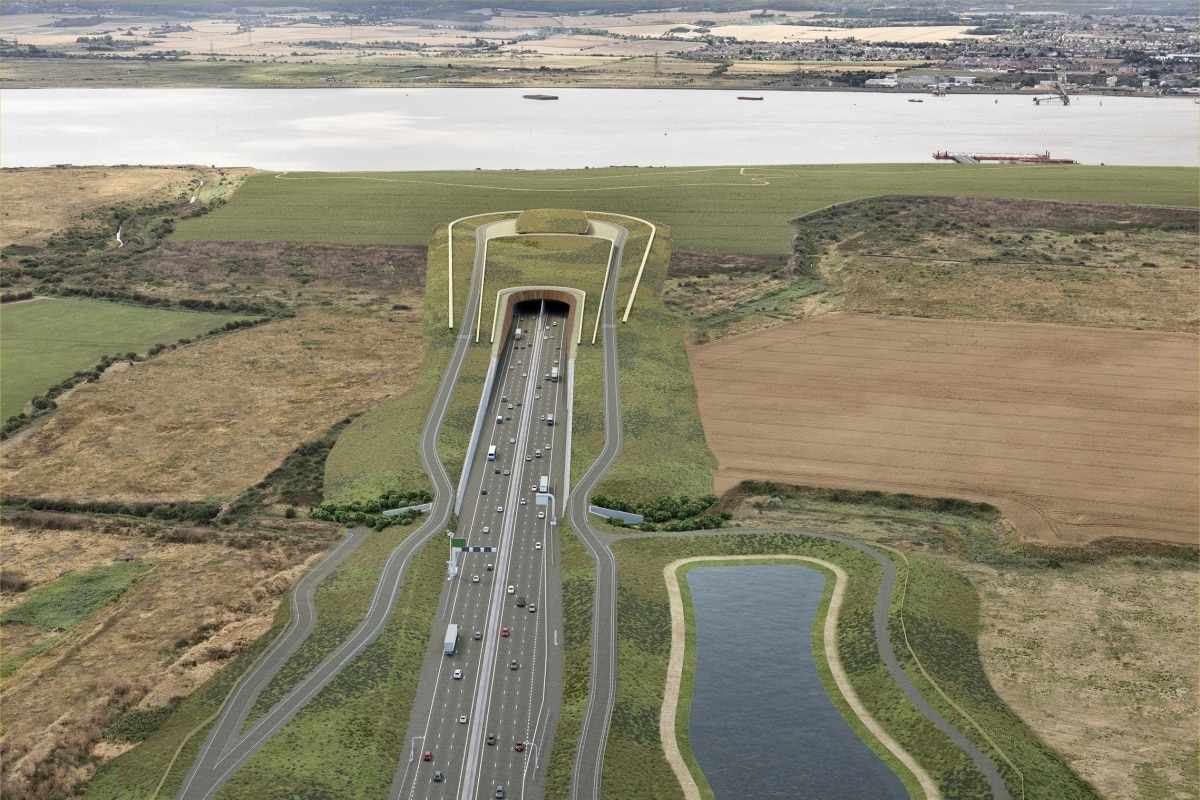Government delays major road improvement schemes as funds are poured into HS2 rail

Major road upgrade projects are to be delayed as the Government diverts funding to the struggling HS2 high-speed rail project, which itself has been delayed and cut, according to the latest release from the Department for Transport.
Road schemes facing delays include the Lower Thames Crossing (pictured), which is to be pushed back by two years, as well as a number of other major relief routes including the A27 Arundel bypass.
The delays have been met with disappointment from road user lobbyists. Edmund King, AA president, said: “All modes of transport are vital to the economy, environment and society in the UK, so cuts across the board will have a detrimental effect.”
He added: “The majority of goods and passenger journeys are dependent mainly on roads but also on rail for longer journeys. The slashing of expenditure on active travel by two thirds is particularly harsh as even 68% of drivers think local roads require more investment to make cycling safer.”
In a written statement, Secretary of State for Transport Mark Harper blamed the Ukraine war for pushing up inflation, and thus precipitating the cuts. He said: “Putin’s war in Ukraine has hiked up inflation, sending supply chain costs rocketing. The responsible decisions I’ve outlined today will ensure we balance the budget at the same time as investing record sums in our transport network to help halve inflation, grow the economy and reduce debt.”
But HS2 remains the major destination for funding, despite the Government announcing that when it finally opens, it will not terminate at Euston Station but at Old Oak Common in suburban north-west London, where travellers will have to take a connecting service to central London – thus eliminating any HS2 time savings over existing Euston-Birmingham services.
Harper’s statement said: “The Government will prioritise delivering the opening stage of HS2, with the first high-speed rail services running between new stations at Old Oak Common in west London and Curzon Street in Birmingham by the early 2030s.”
So far more than £20 billion has been spent on HS2, and of the new £40bn announcement, to be spent over the next two years, only £8bn is committed to roads – with the bulk of the other £32bn earmarked for HS2.
Furthermore, the second phase of HS2 from Birmingham to Crewe and Manchester will be pushed back and will probably not open, if at all, until 2041 at the earliest.
Harper’s statement continued: “The Government also remains fully committed to delivering HS2 from Euston to Manchester. However, in recognition of inflationary pressures and to help balance the nation’s books, the next two years will be used to rephase construction and optimise future delivery of Phase 2a between Birmingham and Crewe so this is done in the most cost-effective way.”
Meanwhile much-needed road improvements are being pushed back. Harper said road projects subject to “tough decisions” included the Lower Thames Crossing, backed by £800m to date, which will be slowed down by two years.
The crossing is designed to relieve pressure on the Dartford crossing by routing traffic from the M25 near Thurrock to the M2 at Rochester via a new tunnel near Gravesend.
The delay “will allow more time to take into account stakeholder views and prepare an effective and deliverable plan, while helping to meet inflationary pressures and deliver the planning processes properly”, Harper said.
Also facing delays are the A27 Arundel Bypass and A5036 Port of Liverpool Access road. These will be pushed back into the next Road Investment Scheme period (covering 2025-30) “to allow time to ensure stakeholders’ views are fully considered”. Meanwhile other schemes earmarked for 2025-30 will be shunted back to 2030-35.
has issued a written statement which announces delays to major roads projects and cuts to spending on active travel*.
“Teaching safer cycling through Bikeability schemes is also an essential life skill for millions. Some real progress had been made in convincing more people to make short trips to local shops and services by foot and bike during and after the lockdowns, which now may be under threat.”


